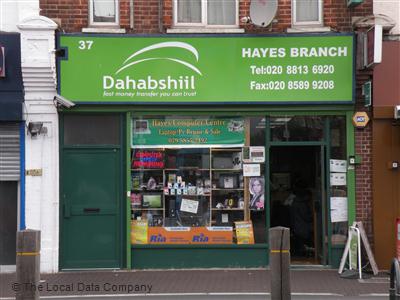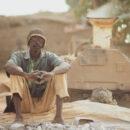Richard Dowden’s Blog: When China met Africa – a worm’s eye view

The new film by the Francis brothers, When China Met Africa, is an exquisite fly-on-the-wall documentary following the fortunes of Chinese projects in Zambia. Mr Liu has come with his family and bought four farms. Mr Li is project manager on the rebuilding of a road. Their stories are told by the characters in the film and by scenes and incidents. There is no commentator, no explainer and no script. The camera’s eye and the editor’s selection of shots and scenes are the story.
http://whenchinametafrica.com/story
So much of what we see on TV, news particularly, is artificial, set up and acted. Making TV documentaries is immensely expensive and time consuming. Most media houses do not have that much to spend these days. The beauty of this film is that Nick and Mark Francis did have time, time to let their subjects get used to the camera and at times forget that it was there. This film is snatched glimpses of reality, carefully edited but authentic.
It showed several important truths about China in Africa. The Chinese get on with it and live more like Africans in African houses. There is no air conditioning and no business class flights back to Europe for holidays every year. One Zambian minister says the Europeans and Americans give him long power point presentations but the Chinese simply ask “Where is a piece of land?” and “When can we start?” The chain smoking, furrowed-browed Chinese managers worry constantly about deadlines and money. Their work rate is extraordinary – and in deeply worrying contrast with most of the Zambians they work with. And so is their ambition. At the beginning Mr Liu is selling his chickens in the local market. By the end of the film he is contemplating his newly-acquired fourth farm. No wonder there are culture clashes about the pace of work, time-keeping and above all ambition. These elements come though even more than the profound language difficulties.
In one scene the workers want to be paid but Mr Liu refuses to pay what they are asking. Mr Liu’s farm workers laugh a lot when they talk to him but what they really feel is hard to judge. It looks like a nasty confrontation is developing. One of the workers says: “This is his property and he is not doing anything for us,” trying to establish a patriarchal relationship with him. The Chinese just want hard work at as cheap a price as they can get. Eventually someone cracks a joke and the workers laugh. The tension is broken.
English is the only common language but the most revealing moments come when Chinese and Africans speak in their own languages. Every aside and quip is translated and come up in subtitles so the jibes of Chinese bosses in Chinese are set against witty sarcasms of the African workers in their own language. It seems inevitable that there will be real clashes in the future, not least because the Chinese will not employ Africans in positions of authority. Any Western company would have employed Africans in middle-ranking and senior positions but here all the bosses are Chinese and all the workers are African. For a while now I have been offering a RAS prize for the first person to find an African bossing Chinese workers. It remains unclaimed.
The Chinese are reluctant to make concessions to Africa. The relationship is just one massive business deal. Unlike the Western approach to Africa, the Chinese have no mission to change it. They do not want to convert Africans to their religion or tell them how to run their countries and make Africans into black Chinese. But their legacy may be roads, airports, dams, hospitals and schools – just what Africa needs but does not seem able to do for itself. Where were the Zambian companies bidding for the rebuilding of the road?
The film confirmed my view that the Chinese are definitely not imperialist. They have no wish to rule and in one way do have a more equal relationship with their hosts. But the Chinese are colonialists. No one knows how many have settled in Africa but it may be in the millions. Unlike the Chinese working for big corporations, many of them will never go back. The final shot is of Mr Liu looking across his newly-acquired land and musing that he wants his son to inherit and live there. The early Rhodesians would have felt much the same.
******************************************************************************************
By a wonderful coincidence Nick and Mark Francis are making their next film on the exodus of capital from Africa. This is the topic of our latest African Arguments Book. Africa’s Odious Debt – How foreign loans and capital flight bled a continent, which we launched on Monday night. The authors, Leonce Ndikumana and James Boyce, argue that some 60% of Africa’s capital has been leached out of the continent and deposited in western banks. This is a topic that has been ignored for decades but we at RAS will also be drawing it to the world’s attention at every opportunity. The tens of billions in question make our aid look like loose change. The Francis brothers are calling their film Cashback.







The film left a number of questions unanswered. It was a series of snapshots into people’s lives a lot like if someone where to walk into your life and follow your lifestyle for a few days without the full backstory. Coming from Zimbabwe I was intrigued by the ‘human face’ of China. It certainly made them seem more human and made me question my perceptions of the Chinese – how much of my perceptions are coloured by the western media and how much is coloured by our African rhetoric. It is a pebble thrown into an ocean and Iam not sure whether the ripple of discussion and engagement on a more equal level. And our leaders are they really doing this as a nation building exercise or merely to plug the cash flow of debt riddled countries and mismanagement of resources. So many questions unanswered!